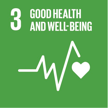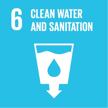About this project
According to the recent report by Joint Monitoring Programme (JMP) 2017, 5.2 billion people used safely managed drinking water services in 2015 as shown in figure 1, which also illustrates that developing country like Nepal is between 26 to 50% in proportion of population using safely drinking water services in the same year. The widespread Information and Communication - ICTs in the developing world has transformed the opportunity costs of communication by minimizing greatly the time and cost of data collection, storage, procession, dissemination and display of information via electronic means, (Faustine & Mvuma, 2014).
The development in Wireless Sensor Networks has significant impact on water resources management (Stoianov et al. 2008; Christin et al. 2009). In addition, ICTs have potential to connect people who are isolated by location and socio-economic situation which can help improve security by assisting in risk management. Thus, several water and sanitation practitioners have started to uplift respective services by leveraging the ubiquity of mobile phones, web interfaces and applications (Hutchings et al. 2012). “Youth Participate in Authentic Science. With Youth-focused Citizen and Community Science, youth contribute to authentic science. They can do it through data collection, but also interpreting or sharing findings” (Ballard, Dixon, & Harris, 2016).
The sustainable availability of safe drinking-water will be at risk unless water supply systems are resilient to both current levels of climatic variability and future change. Climate change is expected to alter the spatial distribution, timing and intensity of weather-related events. With the projection of more frequent and severe extreme weather events, climate change will create stress on freshwater resources and water quality and, therefore, the safety and security of drinking-water. These events, including higher incidence of flooding or drought, will result in adverse impacts on water supply services and pose a danger to development and human health. In the face of such anticipated climate change impacts, there is a need to improve the climate resilience of water supply services to cater for extreme weather conditions, increasing resource stresses and ensuing water quality and quantity issues (WHO, 2017).
This is a part of on-going doctoral research where ‘water supply and quality monitoring using emerging technologies’ is the main- focus area. Here, Youth are the key-actors as ‘Young Water Volunteers’- YWVs assigned officially in ‘water clubs’ with intensive training and tools for water sampling, test, data collection, reporting and sharing. So, we have working continuously with the development of suitable design and implementation of Youth-led Participatory Sensing (YPS) Model
to enhance drinking water security using ICTs as the main tool, including field kits, water quality sensors, mobile apps, data dissemination digital platforms like websites- which can also support for research based learning environment.
Now, with the regular workshops, seminars & training sessions including direct consultations with water utilities, other stakeholders and advisors, Young Water Volunteers- YWVs tend to support in Climate Resilient Water Safety Plan (CR-WSP) for the respective water supply schemes.
And, we follow ‘TMPI’ method for our model, activities and products!
Iterative Design Cycle, TMPI: Think, Make, Play and Improvise
Goals and Objectives
In most of the developing countries, the main priority is given to the quantity aspect of water supply than that of quality, which plays a vital role to govern the public health in that region.
And, the important issue is, there is no data available on ‘water supply and quality monitoring’ which makes it complicated to understand and analyse the situation properly to take necessary action required. There is a big gap of information flow: communication and data sharing gap between water supply schemes, community and decision makers
In addition, ‘Youth in general’ lack adequate information on water supply, quality, sanitation, and hygiene measures, climate crisis and action needed. These factors are always important to build a sustainable future and can be realized more in the critical situations like Pandemic for now and all other times. Furthermore, it can be seen, women groups and their local knowledge-capacities are also not properly valued or utilized, which make a huge difference to have a good balance in the society.
No doubt, ‘Youth’ are the heart of development if their full potential can be best utilized for resources management like water and all other resources we are surrounded with. There can be WIN-WIN situation if their involvement can be considered with the fact ‘Youth are the best learners and contributors at the same time.
As explained above, this project proposal is a part of on-going doctoral research where ‘water supply and quality monitoring using emerging technologies’ is the core component. In this research initiative, Youth are the key-actors as Young Water Volunteers (YWVs) assigned officially in ‘Water Clubs’ with intensive training and tools for water sampling, test, data collection, reporting and sharing under ‘Youth-led Participatory Sensing’- YPS Model in progress. For the pilot case study, two schools named ‘Janapriya Higher Secondary School’ and ‘Gurukul Vidhyashram’ were chosen to cover the area of two selected water supply schemes of ‘Pokhara Metropolitan City’-Nepal.
The principles and practice of water safety planning, and its implicit requirement that risks to drinking-water safety and security are identified, prioritized and managed before problems occur, makes it a valuable entry point to address the impacts of climate change. Young Water Volunteers-YWVs are already introduced to the basic modality of water safety planning and related climate hazards including actions required. But, upscaling YPS Model in supporting Climate-Resilient Water Safety Plan (CR-WSP) in a systematic function would be an added value to the research initiative by following the guidelines as the methodological approach to integrate YWVs in WSP (Water Safety Plan) Team where available or build on their own.
This allows ‘drinkPani’ and others to replicate the entire concept under ‘Techno-Socio-Institutional’ -TSI framework in other adjacent water supply schemes about the national context and beyond.
Therefore, this research initiative aims to support in filling knowledge-data gap and converting data to information-communication into evidence-informed decision making. We have launched our own app and website – ‘drinkPani’. It reflects the continuous iteration process since a year, with users and advisors to come to this point. We look forward to upscale this model and activities in advancing some tools and targets to serve and support in solving the issue regarding ‘water supply and quality monitoring’.
We believe in 'shaping digital water future'!
#WaterGeneration #DigitalWater #SDGs #SustainableFuture
Expected result
This research project is using ICTs as some required tools to communicate data, knowledge and information on water supply and quality between local to national stakeholders and beyond. Most of the developing countries are suffering in regular and effective communication of drinking water quality to take necessary decisions and actions when it is needed. If we are-able to connect this loop right from the early start of emerging water leaders in making. i.e. capacitating Youth (from high school to university level) in actual understanding and work of water supply and quality monitoring using ICTs understanding and analysing all detected and possible risk factors, which ultimately leads to the sustainable development of the sector:
'Drinking Water Security' and opens-up future doors of 'Water Innovations and Technologies'.
Thus, by the end of this project we tend to see,
• YWVs’ systematic integration or cooperation with WSP Team for CR-WSP activities
• Women Group- Mothers’ Group within WSP team or outside would be the active support system for YWVs within YPS Model
• Water Clubs are provided with adequate training and tools for field activities including climate hazard analysis, data collection, reporting and dissemination
• YWVs and selected schools including their water clubs can support as resource center for the expansion of the concept and replication.
• Relevant features regarding CR-WSP will be incorporated in both ‘drinkPani’ app and website for systematic data management portal.
Sustainable Development Goals
Partners
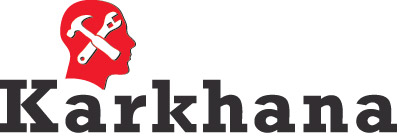
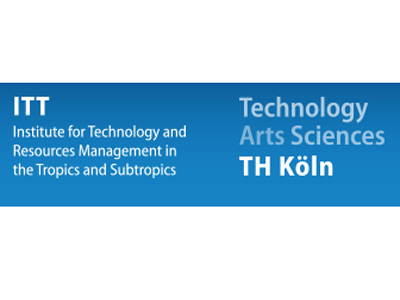
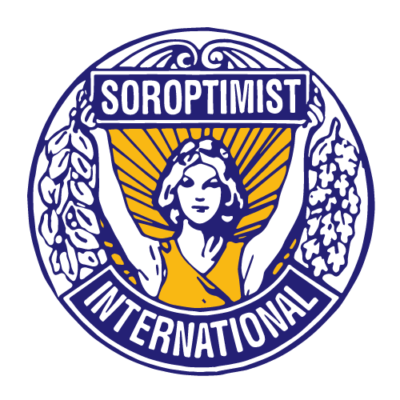
About me / organisation
Amrita Gautam
Amrita Gautam is a Ph.D. research scholar in Technical University of Cologne (TH Koeln), Germany in cooperation with Institute of Engineering (IOE)- TU, which is also her university during bachelor study in Nepal.
She is a Civil Engineer by profession with special focus in Hydro-Informatics (Water Supply Engineering and Management) and has worked for various ‘United Nations (UN) Organizations and Research Projects’ in Nepal, Germany, Mozambique, Brazil, Canada & USA. She loves traveling, especially with professional agenda, thus has traveled more than 25 countries in 5 different continents in various roles and responsibilities. Her ongoing doctoral research is about “Water Supply and Quality Monitoring via emerging technologies”, and the case study area is Pokhara Metropolitan City (PMC), Nepal. As a result, she has founded a research initiative- “drinkPani” (www.drinkpani.net), together with her core research interns.
She has completed her master in ‘Water Resources Technology and Management’ from TH Koeln with a scholarship from Federal Ministry of Education and Research, Germany. As a Young Water Professional, Amrita has been handling active roles in International Water association (IWA); World Youth Parliament for Water (WYPW); Soroptimist International (SI- a global voice for women); Women for Water Partnership (WfWP); NGO Committee on Status of Women (CSW)- New York; German-Nepal Young Academic Network (GYAN) under German Nepal Friendship Association (GNFA); Rural Water Supply Network (RWSN); and is mentor to Girls in Tech- Nepal.
Amrita understands ‘implementing the ideas of participatory sensing is quite challenging'. She has previously worked in ‘Citizen Science Projects’ during master thesis (“Design of a Community Based Water Quality Monitoring (CBWQM) Strategy in the micro-basins Barracão dos Mendes, Santa Cruz and São Lourenço, RJ, Brazil”) and additional university project ‘Environmental Monitoring using Smart Phones’ while working as a research assistant before commencing doctoral research. Since, the doctoral research is in its final phase, last three years have been a great experience for ‘Amrita and research interns’ in the local context conceptualizing and implementing the idea of ‘Youth-led Participatory Sensing (YPS) Model. In addition, she has worked in Water Safety Plan (WSP) Project under WHO-Nepal and Department of Water Supply and Sewerage Management (DWSSM) before arriving to Germany for master’s degree. Then, she started to have more insights and vision in this sector in global perspective as well.
Website Website
